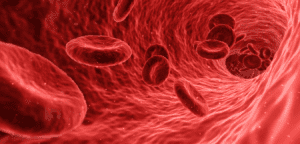Do Nootropics Raise Blood Pressure?
Nootropics can cause a variety of side effects, from mild ones like headaches to more serious complications like an increased risk for heart disease. Certain classes of nootropics may be associated with causing high blood pressure or stroke, while others are linked to the potential for weight gain and mood swings.
In this article, I'll take a closer look at some of the most popular classes of nootropics and whether they cause blood pressure problems, as well as discuss how to safely use them.
So without further ado, let's just get straight into it, shall we?
How Nootropics Can Affect Blood Pressure
When it comes to nootropics, there are a variety of different chemicals that can be classified as such. Some of the most popular nootropics include racetams, ampakines, and cholinergics.
Each of these classes of nootropics can affect blood pressure in different ways.
For example, racetams may increase blood pressure levels while ampakines have the potential to lower blood pressure.
One thing to keep in mind is that not all people will experience the same effects from nootropics.
Some people may be more sensitive to the effects than others, so it's important to start off with a low dose and work your way up if needed.
Nootropics and High Blood Pressure
There is some evidence that suggests certain nootropics may increase the risk for high blood pressure or stroke.
Racetams, for example, are known to have vasoconstriction properties.
This means that they can cause blood vessels to constrict or narrow, which increases blood pressure.
Although the exact mechanism is unknown, it may be related to racetam's influence on neurotransmitters or its ability to lower acetylcholine levels.
Ampakines, on the other hand, may have the potential to decrease blood pressure levels.
One study found that rats who were given ampakines had a sustained drop in blood pressure for up to 5 hours after administration.
However, more research is needed to determine whether these findings apply to humans as well.
Nootropics and Low Blood Pressure


As briefly mentioned above, some nootropics have been found to cause a drop in blood pressure when taken.
In fact, one study discovered that when administered, ampakines caused a significant decrease in blood pressure.
It's important to note that the same may not be true for humans, as this has yet to be confirmed.
If you are taking any medications for blood pressure, it's important to consult with your doctor before starting nootropics.
In some cases, the combination of nootropics and blood pressure medications may lead to adverse effects.
However, this is not always the case and varies from person to person.
In very rare cases, this could put someone at risk for a hypertensive crisis which can be fatal if not treated immediately.
If you're concerned about the effects of nootropics on your blood pressure, it's important to consult a doctor.
They can determine whether or not the nootropics you're considering are safe to take with your current medications.
If they have any concerns about this, be sure to seek out a second opinion from another doctor as well.
